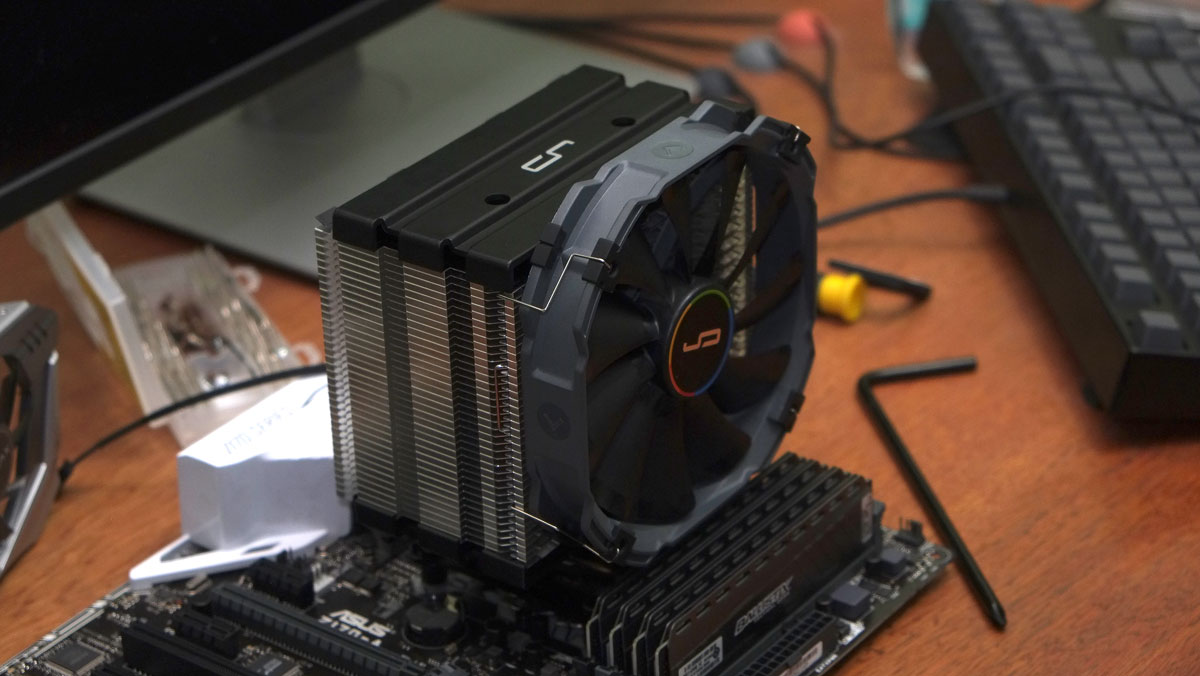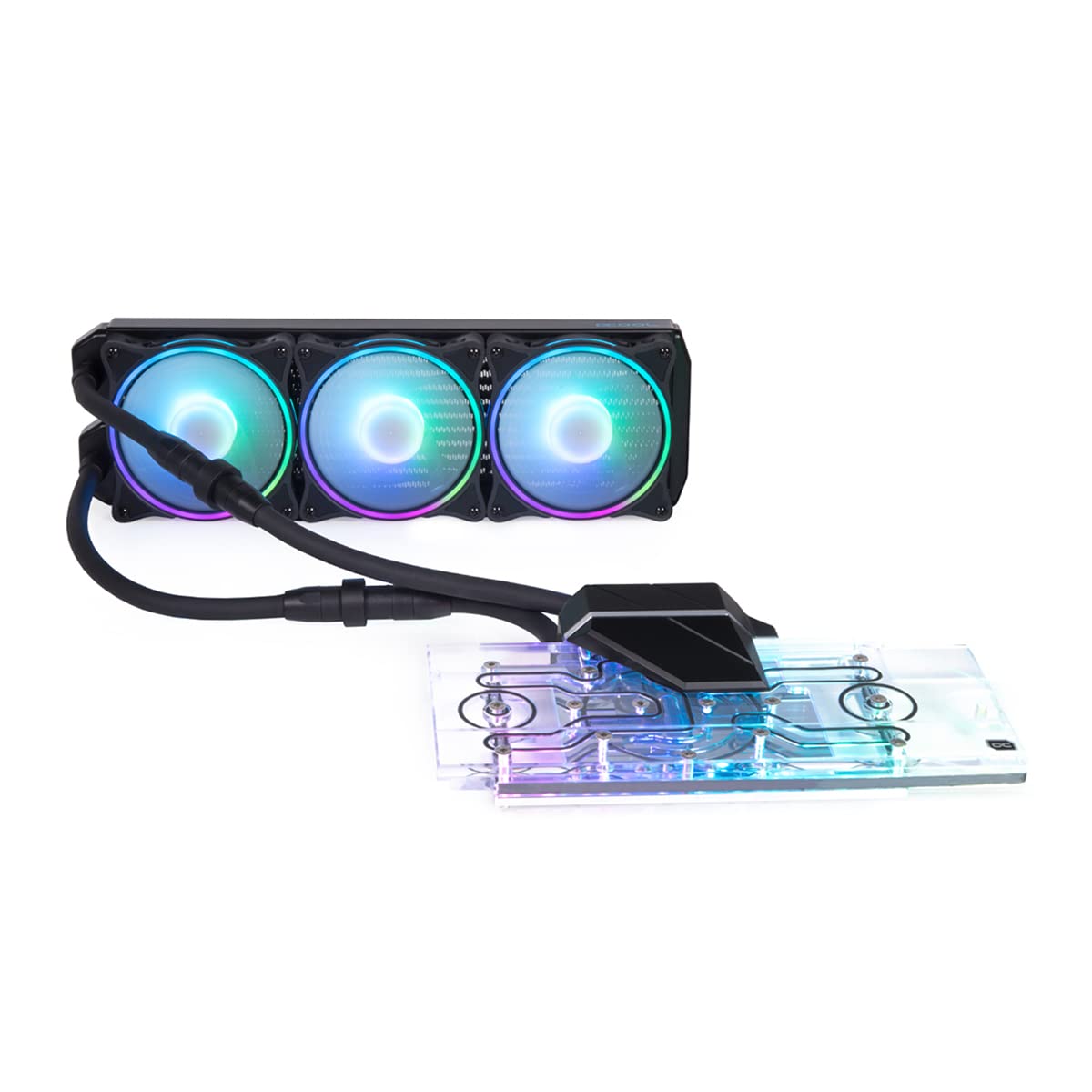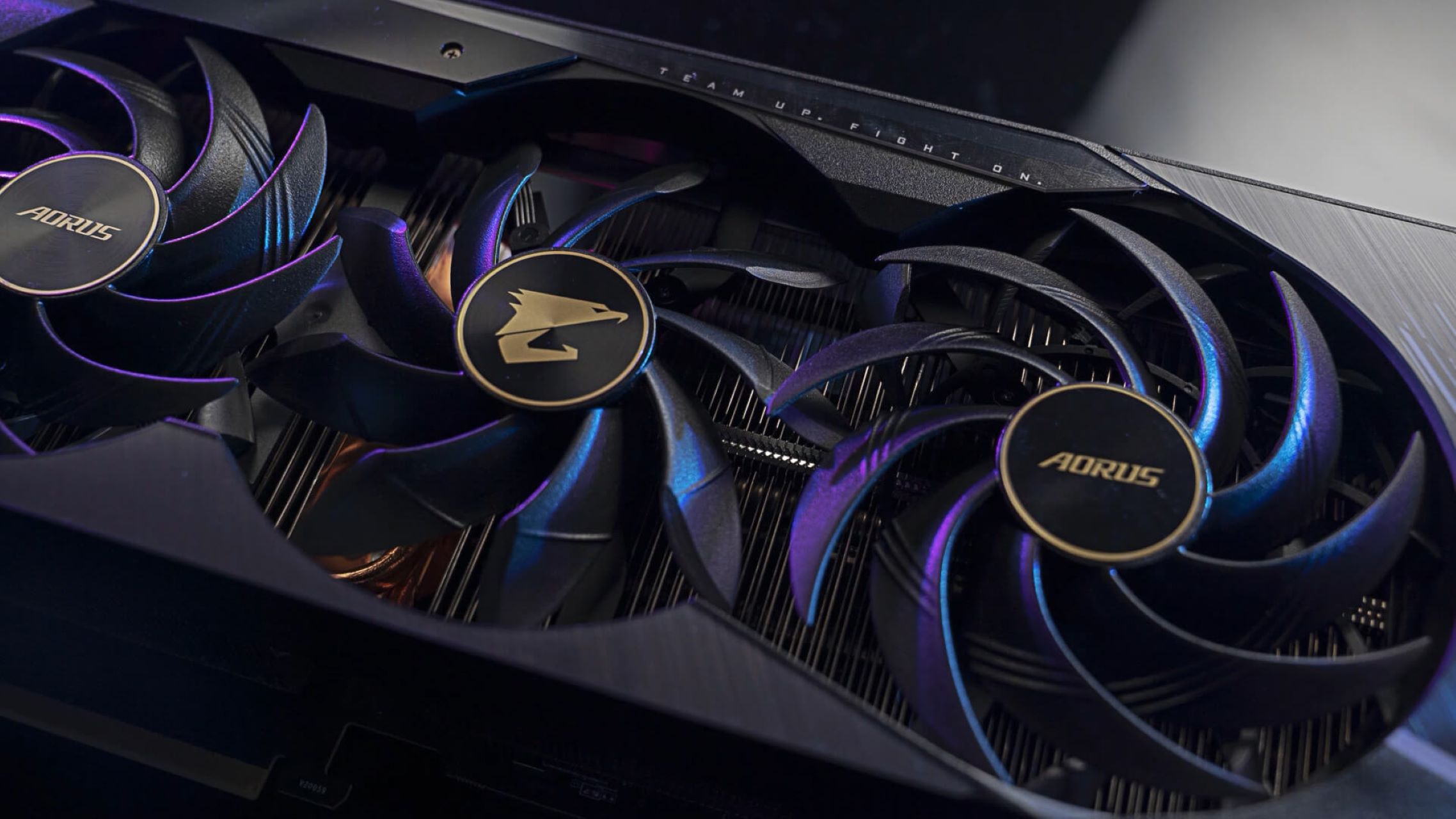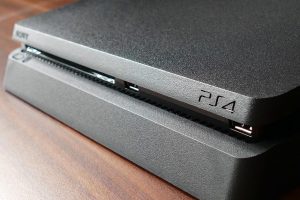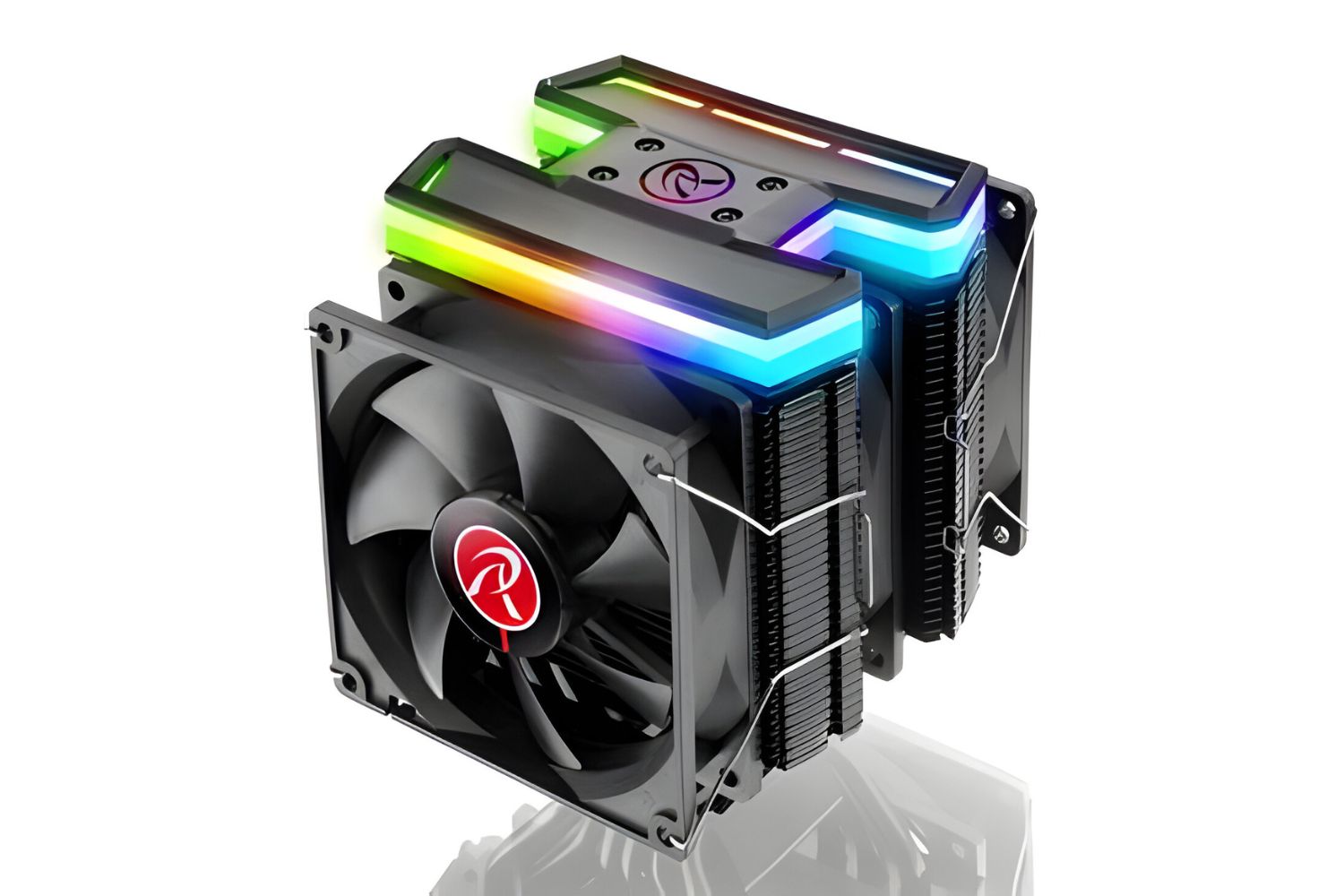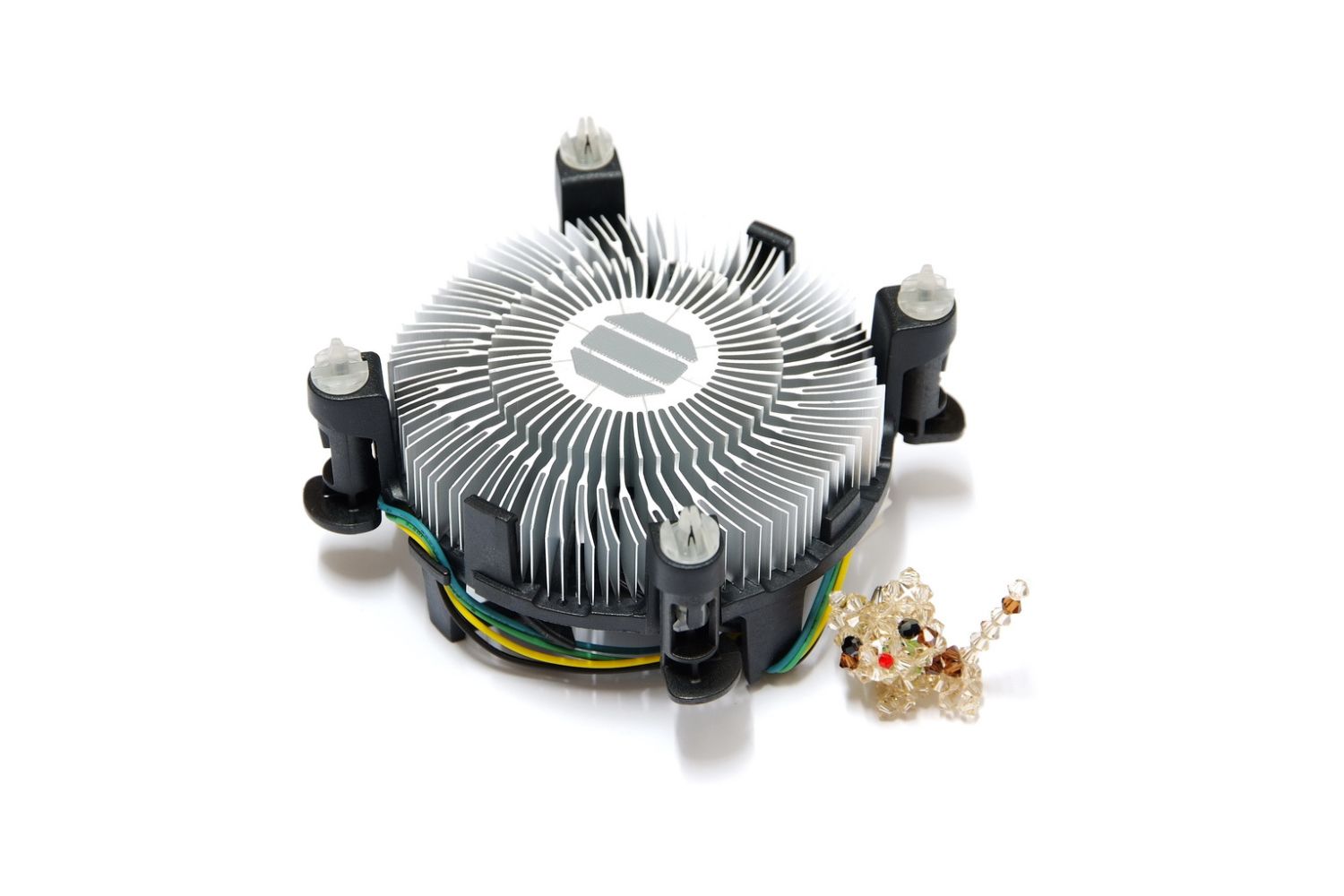Introduction
Welcome to our comprehensive guide on the best CPU coolers of 2016. If you’re a tech enthusiast or a gamer looking to build or upgrade your PC, a CPU cooler is an essential component to consider. The CPU cooler plays a crucial role in maintaining the temperature of your processor, ensuring optimal performance and longevity.
With the ever-increasing power and heat generated by modern CPUs, it is essential to invest in a high-quality CPU cooler to prevent overheating and potential damage. There are two main types of CPU coolers available in the market: air coolers and liquid coolers. Each has its own advantages and considerations to take into account when choosing the right one for your system.
Air coolers, as the name suggests, use fans and heatsinks to dissipate heat from the CPU. They are generally easy to install, affordable, and reliable. On the other hand, liquid coolers use a liquid coolant, such as water or glycol, to transfer heat away from the CPU. Liquid coolers are highly efficient and often provide better cooling performance, especially in the case of overclocking or extreme usage scenarios.
In this guide, we will explore the different types of CPU coolers and provide recommendations for the best options in various categories, including budget-friendly coolers, overclocking coolers, silent operation coolers, and coolers suitable for mini-ITX builds. By the end of this article, you’ll have a better understanding of the factors to consider when choosing a CPU cooler and be equipped with the knowledge to make an informed decision for your specific needs.
So, whether you’re a casual user or an avid gamer pushing your system to the limits, join us as we dive into the world of CPU cooling and help you find the best CPU cooler solution for your PC.
Air Coolers
Air coolers are the most common type of CPU coolers and are widely used due to their affordability, ease of installation, and reliable performance. They consist of a heatsink and one or more fans that help dissipate heat generated by the CPU.
Heatsinks in air coolers are usually made of aluminum or copper, which are excellent conductors of heat. The heatsink is designed with fins or ridges that increase the surface area for heat dissipation. The fan(s) mounted on top of the heatsink facilitate the airflow, helping to carry the heat away from the CPU and out of the system.
Air coolers come in various sizes and designs to accommodate different PC cases and processors. They are rated based on their thermal dissipation capacity, measured in thermal watts (TDP). It’s crucial to choose an air cooler that can handle the TDP of your CPU to ensure efficient cooling.
One of the major advantages of air coolers is their reliability. Since they do not contain any moving parts other than the fans, there is less risk of leaks or pump failures. Air coolers also tend to be quieter compared to some liquid coolers, making them an excellent choice for users looking for a silent operation.
When selecting an air cooler, there are a few factors to consider. First, you’ll need to ensure that the cooler is compatible with your CPU socket type. Most air coolers are compatible with a wide range of Intel and AMD sockets, but it’s always important to double-check the specifications.
The size of the cooler is also important, especially if you have a small form factor build. Measure the available clearance inside your PC case to ensure that the air cooler will fit comfortably without obstructing other components.
Lastly, consider the noise level of the fan(s) on the air cooler. Some coolers come with adjustable fan speeds or noise-dampening features, offering a balance between performance and noise.
Now, let’s dive into our recommendations for the best air coolers of 2016 that cater to different budgets and requirements.
Liquid Coolers
Liquid coolers, also known as water coolers, offer advanced cooling solutions for CPUs. They utilize a closed-loop system that consists of a water block, radiator, pump, and tubing filled with a liquid coolant.
The water block is attached to the CPU, and the liquid coolant absorbs heat as it flows through the block. The heated coolant then travels through the tubing to the radiator, which is equipped with one or more fans. The fans help dissipate the heat by blowing air through the radiator, cooling the liquid coolant. Finally, the cooled coolant is pumped back to the water block to repeat the cycle.
Liquid coolers are highly efficient at heat dissipation and often outperform air coolers, especially in extreme usage scenarios like overclocking or heavy gaming. They can handle higher TDPs and provide more precise temperature control, resulting in lower CPU temperatures and potential performance boosts.
There are two main types of liquid coolers: closed-loop coolers and open-loop coolers.
Closed-loop Coolers:
Closed-loop coolers, also known as all-in-one (AIO) coolers, come pre-filled and sealed, requiring no maintenance or refilling. They are relatively easy to install and are compatible with most modern CPU sockets. Closed-loop coolers offer excellent cooling performance and are a popular choice among enthusiasts and gamers.
Open-loop Coolers:
Open-loop coolers, also known as custom or DIY liquid cooling systems, require more effort to set up. They offer more flexibility and customization options, allowing users to choose specific components such as the pump, reservoir, radiator, and tubing. Open-loop coolers require maintenance and periodic coolant refills.
When considering a liquid cooler, it’s important to ensure compatibility with your CPU socket and PC case. The radiator size should fit comfortably in your case, and the tubing length should provide enough flexibility for installation.
While liquid coolers offer superior cooling performance, they can be more expensive compared to air coolers. Additionally, there is a small risk of leaks or pump failures, although this is rare with reputable brands and proper installation.
Now, let’s explore our recommendations for the best liquid coolers of 2016, including top picks for closed-loop and open-loop systems.
Closed-loop Coolers
Closed-loop coolers, also known as all-in-one (AIO) coolers, offer users the benefits of liquid cooling while being easy to install and requiring no maintenance or refilling. These coolers come pre-filled and sealed, combining the benefits of liquid cooling technology with the convenience of a plug-and-play solution.
AIO coolers consist of a water block, pump, radiator, and fans, all integrated into a single unit. The water block is mounted on the CPU to absorb heat, which is then transferred to the liquid coolant. The heated coolant then travels through the tubes to the radiator, where the fans dissipate the heat, cooling the liquid before it is pumped back to the water block.
One of the major advantages of closed-loop coolers is their simplicity. They are designed to be user-friendly, with easy installation processes that usually involve mounting the water block on the CPU and attaching the radiator to the case. The closed nature of these coolers eliminates the need for maintenance or coolant refills, making them a popular choice among users who want hassle-free cooling solutions.
Closed-loop coolers are available in various sizes to accommodate different PC cases and cooling requirements. The radiator size and number of fans can affect the cooling performance, so it’s important to choose a cooler that fits your case and offers sufficient cooling capacity for your CPU.
When selecting a closed-loop cooler, consider the noise level of the fans as well. Some AIO coolers offer adjustable fan speeds or come with noise-dampening features to provide a balance between cooling performance and silent operation.
Now, let’s explore our recommendations for the best closed-loop coolers of 2016, catering to different budget ranges and performance needs.
Open-loop Coolers
Open-loop coolers, also known as custom or DIY liquid cooling systems, provide users with the ultimate flexibility and customization options when it comes to CPU cooling. These coolers allow enthusiasts to handpick specific components such as the pump, reservoir, radiator, tubing, and coolant to create a bespoke cooling solution.
Unlike closed-loop coolers, open-loop coolers require more effort and knowledge to set up. Users need to carefully plan and assemble various components to create a complete liquid cooling system. This customization allows for better performance and aesthetics, as users can choose components based on their specific needs and preferences.
Open-loop coolers offer better cooling efficiency compared to closed-loop coolers due to the ability to use larger radiators, more powerful pumps, and additional cooling blocks for other components like graphics cards. This makes them an excellent choice for users who engage in heavy overclocking or demand the highest level of cooling performance.
However, with the added customization and performance comes the responsibility of maintenance. Open-loop coolers require periodic cleaning and coolant refills to ensure optimal performance and prevent any potential issues like blockages or degradation of the coolant over time.
When building an open-loop cooler, it’s important to ensure compatibility between all the components. Consider the size of the radiator and the available space inside your computer case. Ensure that the pump provides sufficient flow rate to circulate the coolant effectively, and choose the appropriate tubing size and type for durability.
It’s worth noting that open-loop coolers require careful planning and may not be recommended for beginners or those who prefer a more straightforward installation process. However, for users who enjoy the satisfaction of building and customizing their cooling solutions, open-loop coolers offer the highest level of performance and personalization.
Now, let’s explore our recommendations for the best open-loop coolers of 2016, providing high-performance options for those seeking the ultimate in CPU cooling customization.
Comparison of Air and Liquid Cooling
When choosing a CPU cooler, it’s essential to weigh the advantages and disadvantages of both air and liquid cooling solutions. Let’s compare these two popular cooling methods to help you make an informed decision based on your specific needs and preferences.
Cooling Efficiency:
Liquid cooling systems, especially open-loop coolers, generally offer superior cooling efficiency compared to air coolers. Liquid coolers have the ability to handle higher TDPs and provide more precise temperature control. This makes them ideal for users who engage in heavy overclocking or require the absolute best cooling performance for their CPUs.
Air coolers, on the other hand, are reliable and perform well under normal usage scenarios. They can effectively cool most CPUs without any issues, making them a cost-effective and hassle-free option for many users.
Installation and Maintenance:
Air coolers are typically easier to install, requiring minimal effort and no maintenance. They come with straightforward mounting mechanisms and often include pre-applied thermal paste, making the installation process quick and simple. Once installed, air coolers require little to no attention, making them a popular choice for users who prefer a “set it and forget it” solution.
Liquid cooling, especially open-loop systems, demands more effort during installation. Users have to carefully plan and assemble various components, ensuring compatibility and proper placement. Additionally, open-loop coolers require periodic maintenance, such as cleaning and coolant refills, to maintain optimal performance.
Aesthetics:
Liquid coolers, particularly open-loop systems, offer a higher level of customization and aesthetics compared to air coolers. With open-loop systems, users can choose unique components, customize tubing routing, and even include colored coolants or LED lighting for a visually pleasing setup. This aspect appeals to users who prioritize the overall aesthetics and visual impact of their PC build.
Air coolers, while not as customizable, have their own aesthetic appeal. They often come with stylish heatsink designs and RGB lighting options that can enhance the visual look of a system. Air coolers also tend to be more compact, making them a better option for smaller PC cases.
Noise Level:
Liquid coolers, particularly closed-loop systems, are generally quieter compared to air coolers. The use of larger radiators with low RPM fans allows for efficient heat dissipation with minimal noise. This makes liquid coolers a suitable choice for users who prioritize silent operation.
Air coolers can vary in noise level depending on the fan speed and design. While some air coolers can be quite silent, others may produce noticeable noise, especially at higher RPMs. However, with the advancement of fan technology and noise-dampening features, many air coolers now offer a good balance between cooling performance and noise output.
In summary, both air and liquid cooling solutions have their own strengths and weaknesses. Air coolers are reliable, easy to install, and generally more cost-effective. On the other hand, liquid coolers offer superior cooling efficiency, customization options, and a quieter operation, but require more effort during installation and maintenance. Consider your specific needs, budget, and priorities to choose the ideal CPU cooler for your system.
Factors to Consider When Choosing a CPU Cooler
Choosing the right CPU cooler is crucial to ensure the optimal performance and longevity of your processor. With a wide variety of options available in the market, it’s essential to consider certain factors before making a decision. Here are some key factors to keep in mind when choosing a CPU cooler:
CPU Socket Compatibility:
The first step is to ensure that the cooler is compatible with your CPU socket. Most coolers support a range of socket types for both Intel and AMD processors. Check the specifications of the cooler to ensure it matches the socket type of your CPU to avoid any compatibility issues.
Cooling Performance:
Consider the cooling performance of the cooler. The cooling efficiency is typically measured in thermal watts (TDP), which represents the amount of heat the cooler can dissipate. Make sure the cooler you choose has the capacity to handle the TDP of your CPU to ensure efficient cooling, especially if you are planning to overclock or use the PC for heavy workloads.
Form Factor and Clearance:
Consider the size of the cooler and its compatibility with your PC case. Some coolers, especially air coolers, can be large and may not fit in smaller form factor cases. Measure the available clearance inside your case, including the height, width, and depth, to ensure that the cooler will fit comfortably without obstructing other components like RAM or graphics cards.
Noise Level:
Take into account the noise level produced by the cooler. Coolers with larger fans or those designed for silent operation tend to produce less noise. If a quiet PC build is important to you, look for coolers that offer noise-reducing features or come with low-noise fans.
Aesthetics:
If the visual appearance of your build is important to you, consider the aesthetics of the CPU cooler. Air coolers often come in various designs with different finishes and RGB lighting options. Liquid coolers, especially open-loop systems, offer more customization possibilities with colored tubing, reservoirs, and lighting effects.
Budget:
Consider your budget when choosing a CPU cooler. Air coolers are generally more affordable compared to liquid coolers, especially open-loop systems. However, liquid coolers, particularly closed-loop systems, offer better cooling performance but come at a higher price point.
By considering these factors, you can find a CPU cooler that meets your specific requirements, whether it’s for gaming, overclocking, silent operation, or a balance of all these factors.
Best CPU Coolers for Different Budgets
When it comes to choosing a CPU cooler, your budget plays a significant role in determining the options available to you. Here are some of the best CPU coolers for different budgets:
1. Budget-Friendly Coolers:
If you’re on a tight budget, there are several affordable air coolers that offer reliable cooling performance. The Cooler Master Hyper 212 EVO and the be quiet! Pure Rock Slim are popular choices in this category. They provide efficient cooling at a wallet-friendly price, making them excellent options for budget builds.
2. Mid-Range Coolers:
For those with a bit more to spend, the Cooler Master MasterAir MA610P and the Noctua NH-U12S are excellent mid-range options. These coolers offer a good balance between cooling performance, noise levels, and price. They are suitable for average users and gamers who want better cooling without breaking the bank.
3. High-End Coolers:
If you have a higher budget and are looking for top-of-the-line cooling performance, liquid coolers provide the best options. The Corsair Hydro Series H100i and the NZXT Kraken X62 are standout choices for high-end coolers. These closed-loop liquid coolers offer superior cooling efficiency and customizable RGB lighting effects. They are ideal for users who demand the best cooling performance for overclocking or intense gaming sessions.
4. Budget-Friendly Liquid Coolers:
If you’re interested in liquid cooling but have a limited budget, consider closed-loop liquid coolers like the Cooler Master MasterLiquid ML120L and the Corsair Hydro Series H60. These coolers offer the benefits of liquid cooling at an affordable price. They provide better cooling performance compared to budget air coolers and are a good entry-level option for users who want to explore liquid cooling for the first time.
5. Open-Loop Custom Cooling:
For enthusiasts with a higher budget and a desire for complete customization, open-loop custom cooling systems offer the ultimate cooling solution. Building a custom loop allows you to choose high-performance components like pumps, radiators, and water blocks. Brands like EK Water Blocks and Thermaltake provide a wide range of components to create a personalized cooling setup tailored to your specific needs.
Remember that pricing and availability may vary depending on your location and the current market conditions. It’s always recommended to research and compare prices from various retailers to find the best deals within your budget.
No matter your budget, there are CPU coolers available to suit your needs. Evaluate your requirements, consider your budget, and pick the one that offers the best value in terms of cooling performance, noise levels, and overall features.
Best CPU Coolers for Overclocking
Overclocking your CPU can provide a significant performance boost, but it also generates more heat. To ensure stability and prevent overheating, a high-performance CPU cooler is essential. Here are some of the best CPU coolers specifically designed for overclocking:
1. Noctua NH-D15:
The Noctua NH-D15 is a top-tier air cooler renowned for its exceptional cooling performance. With its dual tower design and six heat pipes, it can handle the heat generated by overclocked CPUs with ease. The NH-D15 includes two NF-A15 fans for efficient heat dissipation, and its massive heatsink ensures optimal cooling even under heavy loads.
2. Corsair H115i Pro RGB:
For liquid cooling enthusiasts, the Corsair H115i Pro RGB is an excellent choice for overclocking. This closed-loop liquid cooler features a 280mm radiator and two 140mm fans, providing excellent cooling performance and airflow. With its customizable RGB lighting and powerful pump design, the H115i Pro RGB combines both style and functionality.
3. be quiet! Dark Rock Pro 4:
The be quiet! Dark Rock Pro 4 is another high-performance air cooler suitable for overclocking. It boasts a dual tower design and seven heat pipes, ensuring efficient heat transfer from the CPU. With its virtually silent operation and sleek aesthetics, the Dark Rock Pro 4 offers excellent cooling performance without compromising on noise levels.
4. NZXT Kraken X72:
For those who prefer a liquid cooling solution, the NZXT Kraken X72 is a top contender. This all-in-one liquid cooler features a large 360mm radiator and three 120mm fans, providing superior cooling capacity. The Kraken X72 also includes customizable RGB lighting and a robust pump design, making it an excellent option for overclocking enthusiasts.
5. Cooler Master MasterLiquid ML360R RGB:
Another great option for overclockers is the Cooler Master MasterLiquid ML360R RGB. With its 360mm radiator and three 120mm fans, it delivers excellent cooling performance for high-end CPUs. The ML360R RGB features customizable RGB lighting, a reliable pump, and a low-noise operation, making it an attractive choice for both performance and aesthetics.
When overclocking, it’s crucial to consider not only the cooling capacity of the CPU cooler but also factors like noise level, build compatibility, and personal preferences. Remember to monitor your CPU temperatures while overclocking and ensure that your system remains stable under the increased workload.
These CPU coolers have proven themselves in the realm of overclocking and provide reliable cooling performance for demanding scenarios. Choose the one that suits your needs and budget, and enjoy the benefits of pushing your CPU’s performance to new heights.
Best CPU Coolers for Silent Operation
If you prioritize a quiet PC experience, selecting a CPU cooler that operates silently is crucial. Here are some of the best CPU coolers known for their silent operation:
1. Noctua NH-U14S:
The Noctua NH-U14S is renowned for its exceptional cooling performance and near-silent operation. Equipped with a large 140mm fan and a spacious single tower design, it efficiently dissipates heat while minimizing noise output. Noctua’s renowned fan technology and outstanding build quality make the NH-U14S an ideal choice for those seeking silent cooling for their CPUs.
2. be quiet! Dark Rock 4:
The be quiet! Dark Rock 4 is a high-performance air cooler that excels in noise suppression. Featuring a sleek design and a Silent Wings 3 135mm PWM fan, it offers exceptional cooling while maintaining a whisper-quiet operation. The Dark Rock 4’s seven heat pipes and special wave-contoured cooling fins ensure efficient heat dissipation without compromising on silence.
3. Noctua NH-D15S:
If you want the performance of the Noctua NH-D15 but prefer a cooler with better RAM clearance, the Noctua NH-D15S is an excellent choice. With its asymmetrical design and offset heat pipe layout, the NH-D15S provides outstanding cooling with improved compatibility for taller RAM modules. It retains the same low noise levels and top-notch performance as its sibling.
4. Cryorig R1 Ultimate:
Known for its excellent noise-dampening capabilities, the Cryorig R1 Ultimate is a dual tower air cooler that excels in silent operation. With its two XF140 fans and direct contact copper heat pipes, the R1 Ultimate offers efficient heat dissipation while minimizing noise output. The cooler’s innovative design and zero-gap heat pipe technology make it a solid choice for silent PC builds.
5. Noctua NH-L12S:
For compact builds, the Noctua NH-L12S is a top-tier cooler that ensures quiet operation. It features a low-profile design and comes with a 92mm fan that provides low-noise cooling without sacrificing performance. The NH-L12S is an excellent choice for those who prefer a smaller form factor system while maintaining excellent noise levels.
These CPU coolers are designed to provide exceptional cooling performance while keeping noise levels to a minimum. They employ advanced fan technologies, specialized designs, and high-quality materials to ensure quiet operation. Remember to pair these coolers with other noise-reducing measures like high-quality case fans and sound-dampening PC cases for the ultimate silent PC experience.
Choose the CPU cooler that fits your requirements and preferences, and enjoy a whisper-quiet computing experience without compromising on cooling performance.
Best CPU Coolers for Mini-ITX Builds
When building a mini-ITX system, choosing the right CPU cooler is crucial due to the limited space available. Here are some of the best CPU coolers designed specifically for mini-ITX builds:
1. Noctua NH-L9i:
The Noctua NH-L9i is an excellent choice for mini-ITX builds. With a height of only 37mm, it can fit compact cases with ease. Despite its small size, the NH-L9i delivers respectable cooling performance through its copper heat pipes and an ultra-quiet 92mm fan. It is specifically designed for Intel CPUs and offers compatibility with a wide range of mini-ITX motherboards.
2. be quiet! Shadow Rock LP:
The be quiet! Shadow Rock LP is a low-profile air cooler that is perfect for mini-ITX systems. With a height of just 75.4mm, it offers ample clearance for RAM and other components in space-constrained builds. The Shadow Rock LP features a brushed aluminum top cover and a 120mm fan for efficient cooling performance without sacrificing silence.
3. Cryorig C7:
The Cryorig C7 is a low-profile cooler specifically designed for small form factor builds. With a height of 47mm, it is suitable for compact mini-ITX cases. The C7 utilizes a copper base and heat pipes for efficient heat transfer, and it comes with an integrated 92mm fan. Its compact design and compatibility with various mini-ITX motherboards make it an excellent choice for space-limited builds.
4. Cooler Master MasterLiquid ML120L V2 RGB:
If you prefer liquid cooling in a mini-ITX build, the Cooler Master MasterLiquid ML120L V2 RGB is a great option. It features a low-profile 120mm radiator, making it suitable for compact cases. With its efficient pump design and low-noise fan, it provides excellent cooling performance in a small form factor. The included RGB lighting adds a touch of style to your mini-ITX build.
5. Noctua NH-D9L:
The Noctua NH-D9L offers a compact, tower-style cooler option for mini-ITX builds. With its low-profile design and dual fan setup, the NH-D9L provides efficient cooling while maintaining compatibility with tall RAM modules. The cooler’s excellent performance, build quality, and quiet operation make it a reliable choice for mini-ITX systems.
These CPU coolers are specifically designed to deliver efficient cooling in mini-ITX builds without sacrificing performance or generating excess noise. Their compact sizes ensure compatibility with small form factor cases, making them ideal choices for those seeking to build powerful and quiet mini-ITX systems.
Consider the dimensions of your mini-ITX case, clearance for other components, and your specific cooling needs when choosing the CPU cooler for your mini-ITX build. With these coolers, you can achieve optimal cooling performance in your compact and space-limited system.
Conclusion
Choosing the best CPU cooler is essential for maintaining optimal performance, prolonging the lifespan of your processor, and ensuring a smooth computing experience. Whether you’re building a gaming rig, engaging in overclocking, or seeking a silent PC, there are various options available to suit your needs and budget.
From air coolers to liquid coolers, there are pros and cons to consider. Air coolers offer reliability and simplicity while providing sufficient cooling for most users. On the other hand, liquid coolers, especially closed-loop and open-loop systems, deliver superior cooling performance, making them ideal for overclocking and high-performance builds.
Factors such as CPU socket compatibility, cooling performance, form factor, noise level, aesthetics, and budget play a crucial role in choosing the right CPU cooler. By considering these factors and evaluating your specific requirements, you can select the best CPU cooler for your system.
We have provided recommendations for the best CPU coolers based on different criteria, including budgets, overclocking, silent operation, and mini-ITX builds. These recommendations include renowned brands such as Noctua, be quiet!, Cooler Master, Corsair, and Cryorig, which have established themselves as leaders in the cooling industry.
Remember to verify the compatibility of the CPU cooler with your CPU socket and PC case before making a purchase. Additionally, it’s always a good practice to check reviews and compare prices from different retailers to find the best deals within your budget.
Whether you’re an avid gamer, a content creator, or a casual user, finding the right CPU cooler can significantly enhance your computing experience. With the right cooler, you can push your CPU to its limits, keep temperatures under control, minimize noise, and create a stylish and efficient system.
Now that you have a comprehensive understanding of the different types of CPU coolers and the best options available, you can confidently make an informed decision to find the perfect CPU cooler that meets your unique needs and preferences.







